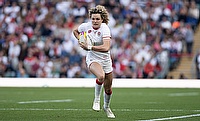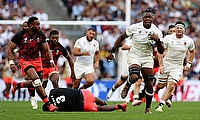Banned for doping Sam Broster claims he ate contaminated biltong
Former academy player at Wasps and Sale, Sam Broster has been banned for two years by UK Anti-Doping after claiming in defence his positive test for a steroid was due to contaminated meat.
Broster tested positive for the presence of the anabolic agent clenbuterol on July 2014 after eating biltong, a form of dried, cured meat, common in South Africa.
Rugby Football Union (RFU) disciplinary panel presiding over case determined that there was no basis for downsizing the punishment.
UK Anti-Doping earlier today released a statement announcing the ban on Broster till August 15, 2016.
"Sam Broster has been suspended from all sport, for two years, following an anti-doping rule violation (ADRV).
"Broster argued that the positive finding had been as a result of eating biltong, a South African form of jerky.
"However, an RFU disciplinary panel concluded that there was no basis for reducing the sanction based on no significant fault or negligence."
Pat Myhill, UKAD director of operations, cautioned the athletes about being responsible for any banned substance in their system and that claiming meat contamination is not easy to defend due to difficulty in obtaining the evidence.
"The meat that has been contaminated will, in most cases, have been eaten," Myhill said.
"Finding evidence to support this defence can therefore be difficult."








